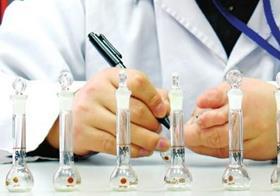
New funding is offering training to the next generation of plant scientists in using artificial intelligence to measure the structure and function of plants.
A new collaborative project between the University of Nottingham and the University of Lincoln has been awarded £800,000 to provide training into plant phenotyping technologies focusing on AI-related topics, specifically data capture and analysis.
The Innovative Training in Data Capture, Analysis and Management for Plant Phenotyping project (Data CAMPP) is part of £10 million of investment in innovation scholarships from UKRI to fund secondment and training programmes in health and bioscience.
Dr Andrew French from the University of Nottingham said: “Recent developments in artificial intelligence, combined with robot-assisted image and sensor data capture, mean that high-throughput acquisition and analysis of vast and varied bioscience data sets has become a reality. But along with this new technology comes challenges around provision of appropriate training for users and beneficiaries of the technology, such as how effective methods of data acquisition are designed and implemented, how methods are adapted to new domains in biosciences, how bioscientists can utilise these new technologies and approaches in their lab or field research and what issues arise with respect to ethical handling of data.”
Data CAMPP will develop a suite of training materials targeted to a broad bioscience audience, including hands-on activities and online content to support face-to-face and blended learning environments. It aims to cover several key steps in automated data capture, from acquisition to curation and analysis. Participants will be able to engage in hands-on labs to develop computational skills and hardware-based practical exercises that offer insight into the use of robots for data capture, and state-of-the-art techniques for learning models from data.
Data CAMPP will provide training material directly to the UK plant phenotyping community and will, longer-term, work with the ESFRI EMPHASIS initiative, internationally. EMPHASIS seeks to create a pan-European plant phenotyping research infrastructure allowing scientists from across Europe to access and jointly develop phenotyping tools and methods. The University of Nottingham is working closely with BBSRC and BEIS to implement EMPHASIS.
“As the project unfolds over the next two years, we hope the resources will be of interest for those bioscientists wishing to improve their data analysis skills, enabling greater integration of data science and AI approaches in future bioscience research,” French added.



